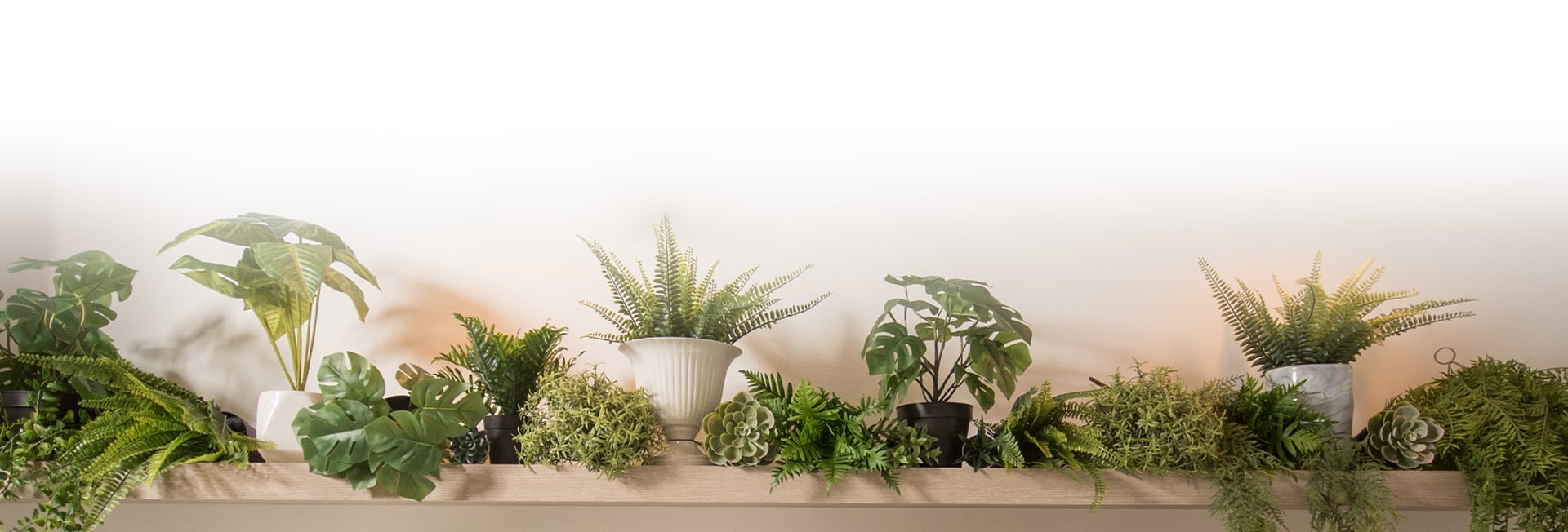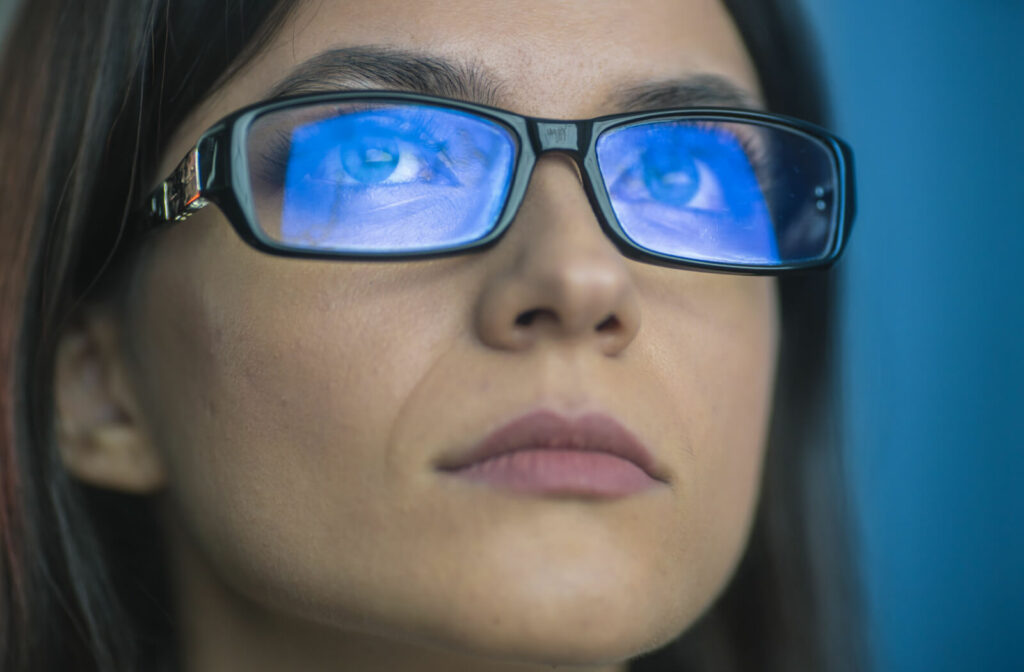If you spend a lot of time in front of screens, you may have heard of digital eye strain and blue light glasses. Blue light glasses can help with eye strain, headaches, and blurry vision caused by prolonged screen use.
A comprehensive exam can help your eye doctor diagnose digital eye strain or identify another cause of your symptoms to provide a treatment plan specific to your vision needs. We explore what blue light is, how it affects your eyes, and whether blue light glasses are an effective way to protect your vision.
What Is Blue Light?
Visible light that we can see has different wavelengths, from 380 nanometers, which is violet light, to 700 nanometers, which is red light. The longer the wavelength, the less energy it transmits, while shorter wavelengths transmit more. Blue light has a short wavelength, 415 to 455 nanometers.
The majority of blue light is from the sun. However, there are also artificial sources of blue light. These include digital screens, such as computers and laptops, flat-screen televisions, cell phones, tablets, LED (light-emitting diode) lights, and fluorescent bulbs.
How Does Blue Light Affect Your Eyes?
The cornea (the transparent front part of your eye) and lens (which sits behind the coloured part of your eye) protects the retina (the light-sensitive tissue at the back of your eye) from harmful UV rays. But they can’t keep out blue light.
While some blue light from the sun is good as it can promote alertness and signals when to wake up, exposure to too much blue light at a close range during the day and at night can cause the following symptoms:
- Eye fatigue
- Headaches
- Eyestrain
- Affect your circadian rhythm
- Dry eye
Because high-energy blue light can penetrate deeper into the eye, it can contribute to eye-related problems, such as digital eye strain.
Digital Eye Strain
Digital eye strain, or computer vision syndrome, can result when you spend 2 or more hours a day in front of a screen. Looking at digital devices and screens for long periods and close-up can lead to less frequent blinking, which can cause:
- Eye fatigue
- Dryness and discomfort
- Sore or irritated eyes
- Headaches
- Squinting
Can Blue Light Glasses Help?
Blue light glasses help to block or filter out blue light, aiming to reduce the amount of blue light and possible harmful effects of blue light that reaches your eyes. These glasses have a special coating or tint, such as yellow or amber, that reflects blue light away from your eyes.
While some evidence suggests that wearing blue light glasses during computer tasks can reduce the symptoms of digital eye strain, there is a need for more studies to measure the long-term effects of blue light exposure on eye health and whether blue light glasses are an effective way to protect your eyes from blue light damage in the long term.

The Importance of High-Quality Frames and Lenses
Selecting eyeglasses is not only about the style and appearance of the frames—focusing on the quality of the frames and lenses is just as important.
Frames with quality materials are more durable and can withstand everyday wear and tear. They are also less likely to break or become damaged over time, so you won’t have to replace them as often.
The right lenses can significantly improve your vision, reduce eye strain and fatigue, and protect your eyes from harmful UV radiation. Blue light filtering lenses can help reduce the amount of blue light that reaches your eyes.
If you’re looking for blue light glasses, picking up a pair at a retail store might not be the best approach. Speak to your eye doctor about finding the right pair of blue light glasses with function and comfort in mind.
Maintaining Comfortable Vision
It’s important to note that blue light glasses are not a substitute for other healthy habits when protecting your eyes. In addition to wearing blue light glasses, you can take the following steps to help keep your vision comfortable:
- Take regular breaks from screen time. Follow the 20-20-20 rule, which suggests looking away from your screen every 20 minutes to focus on something 20 feet away for 20 seconds.
- Keep your eyes moist. Artificial tears and humidifiers can help moisten your eyes and prevent them from becoming too dry and irritated when using blue-light-emitting devices.
- Keep your prescription up to date. To avoid squinting, use glasses with the correct prescription.
- Adjust your screen settings. Reduce the brightness and blue light emissions on your screen to a comfortable level or use a blue-light filtering screen.
- Get regular eye exams. Schedule regular check-ups with your eye doctor to monitor your eye health and catch any issues early.
Protecting Your Vision & Eye Health
While science is still studying the effectiveness of blue light glasses, there is some evidence to support blue light glasses as an effective tool for reducing eye strain and fatigue caused by blue light exposure from digital screens.
The correlation between blue light exposure in the evening and poor sleep quality is significant as screens decrease production of melatonin. Poor sleep quality can cause mental health issues, metabolic disease- influencing the hormones leptin and ghrelin, cause insulin sensitivity and influence immune balance and inflammation.
Book an appointment with One Vision Eyecare to discuss if they can help reduce your digital eye strain symptoms.




